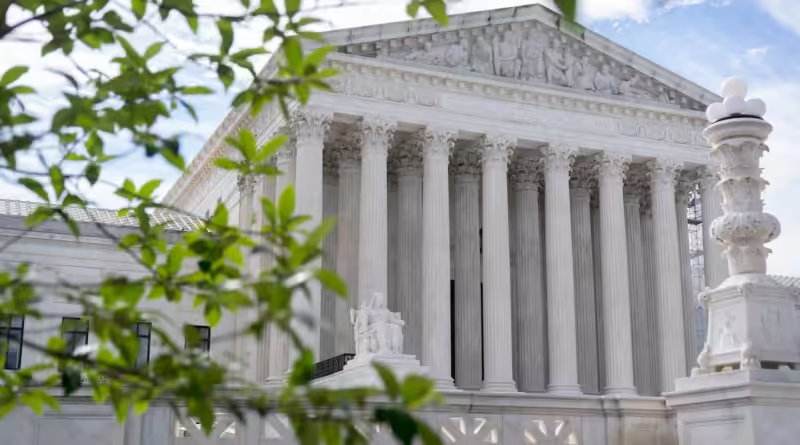Supreme Court grants broad immunity to ex-presidents, reducing likelihood of pre-election Trump trial.
On Monday, the Supreme Court ruled for the first time that former presidents have broad immunity from prosecution, which delays the criminal case in Washington against Donald Trump. This decision, in a 6-3 vote from the conservative majority, affects the charges that Trump plotted to overturn his 2020 election loss and significantly reduces the likelihood of a trial before the November election.
Chief Justice John Roberts, writing for the court, stated that the Constitution grants former presidents absolute immunity from prosecution for actions within their presidential authority and presumptive immunity for official acts. However, there is no immunity for unofficial acts. The dissenting liberal justices criticized the decision, with Justice Sonia Sotomayor arguing it undermines the principle that no person is above the law.
This ruling further narrows the case against Trump, sending it back to the trial court to assess the remaining aspects of special counsel Jack Smith’s indictment. The court also restricted prosecutors from using official acts as evidence to prove unofficial actions, though Justice Amy Coney Barrett disagreed with this part of the ruling.

Following the decision, Trump celebrated on social media, while President Joe Biden and other Democrats criticized the ruling for potentially allowing presidents to act without limits. The trial will continue under U.S. District Judge Tanya Chutkan, but it is unlikely to occur before the 2024 election. If Trump wins the election, he could appoint an attorney general to seek dismissal of his federal cases or attempt to pardon himself, though he cannot pardon himself for his New York state conviction.
The Supreme Court’s involvement reflects its significant role in the upcoming presidential election, with its decisions impacting Trump’s legal battles and the broader political landscape.
